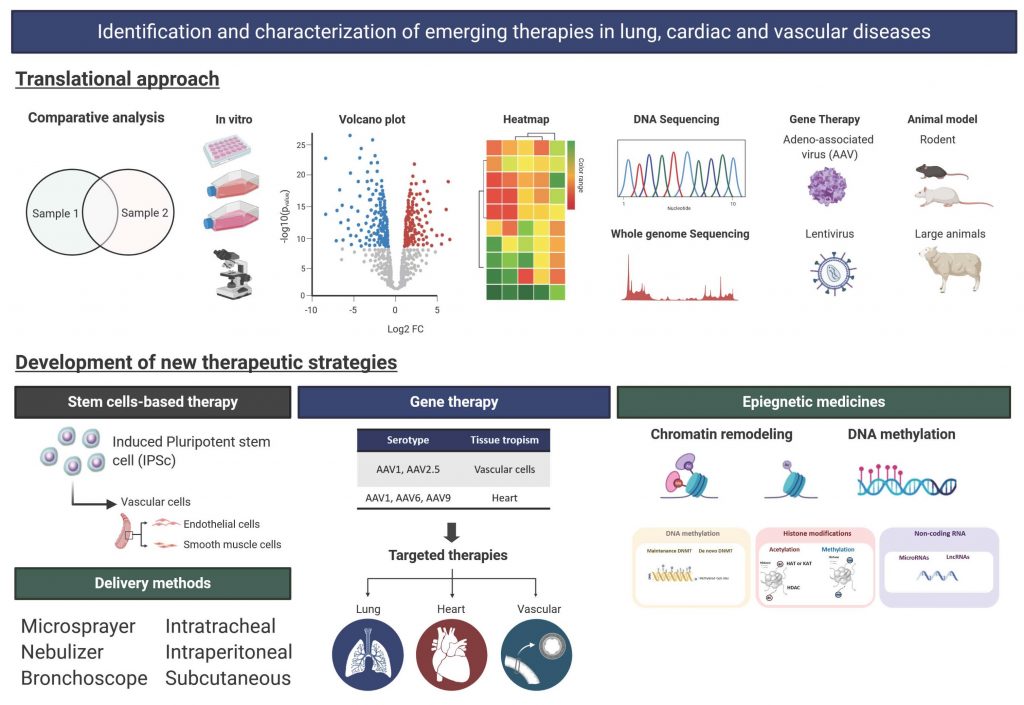RESEARCH
The Hadri Laboratory is focused on studying the cellular, molecular and epigenetic mechanisms in cardiovascular and lung diseases. Our expertise encompasses basic and translational research. Our research integrates both in vitro and in vivo approaches for the development and testing of novel therapeutic platforms/strategies using adeno-associated virus (AAV) gene therapy, chemically modified messenger RNA (modRNA), and small compound therapies. Our multidisciplinary methodologies are complementary, combining cell culture, high resolution microscopy, biochemical assays, molecular biology, -omics (RNA Seq, ChIP-Seq, Targeted-Bisulfite Seq), cardiac MRI, lung CT scan, and small and large animal experimental models of restenosis post-angioplasty, pulmonary artery hypertension (PAH), and pulmonary fibrosis (PF).

We integrate physiological approaches along with genomic, epigenetic, and gene therapy methodologies to determine (i) the epigenetic regulation and (ii) the therapeutic potential of the Switch-Independent 3 (SIN3a) epigenetic complex and EZH2 on vascular cell remodeling and sex susceptibility in pulmonary artery hypertension and right ventricular heart failure. We are also interested in evaluating the therapeutic effects of a novel Epac1 small compound specific-inhibitor, AM-001, in small and large animal pre-clinical models of pulmonary fibrosis.
Gene Transfer and Cardiovascular Remodeling: Our team is also interested in the role of intracellular calcium abnormalities and other key proteins implicated in the pathophysiology of heart failure in small and large animal models. We have demonstrated that overexpression of SERCA2a by gene transfer improves cardiac contractility and survival in animal models of heart failure.


Support
National Institutes of Health
American Heart Association
Cardiovascular Medical Research Education Fund
Press release
https://www.sciencedaily.com/releases/2013/07/130730101602.htm
Inhalable gene therapy may help pulmonary arterial hypertension patients (medicalxpress.com)
